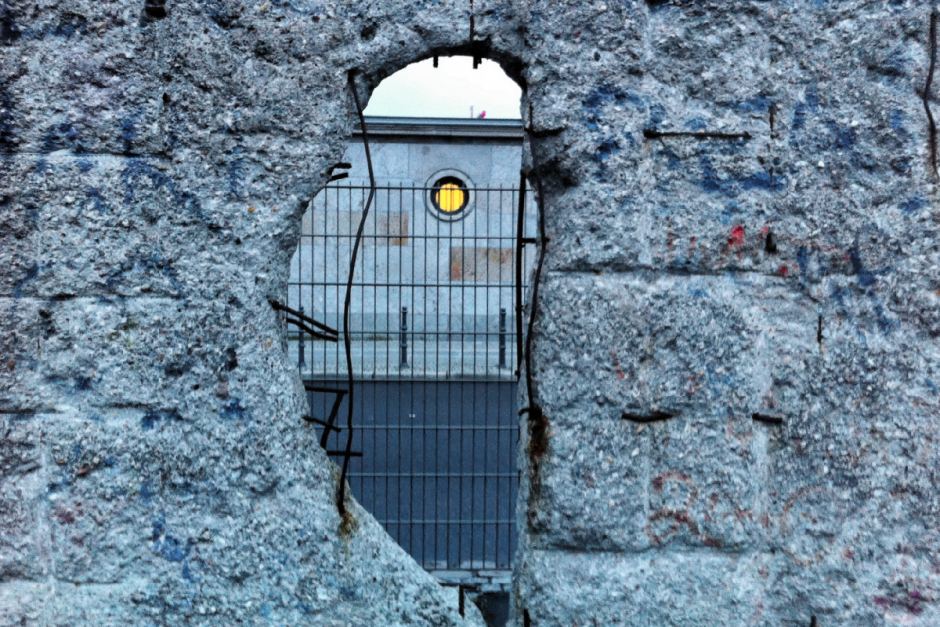The Berlin Wall Fell, but Communism Didn’t
From North Korea to Cuba, millions still live under tyrannous regimes.

As the world marks the 25th anniversary of the fall of the Berlin Wall on Nov. 9, 1989, we should also remember the many dozens of people who died trying to get past it.
Ida Siekmann, the wall’s first casualty, died jumping out of her fourth-floor window while attempting to escape from East Berlin in August 1961. In January 1973, a young mother named Ingrid hid with her infant son in a crate in the back of a truck crossing from East to West. When the child began to cry at the East Berlin checkpoint, a desperate Ingrid covered his mouth with her hand, not realizing the child had an infection and couldn’t breathe through his nose. She made her way to freedom, but in the process suffocated her 15-month-old son. Chris Gueffroy, an East German buoyed by the ease of tensions between East and West in early 1989, believed that the shoot-on-sight order for the Berlin Wall had been lifted. He was mistaken. Gueffroy would be the last person shot attempting to flee Communist-occupied East Berlin.
But Gueffroy was far from the last victim of communism. Millions of people are still ruled by Communist regimes in places like Pyongyang, Hanoi and Havana.
As important as the fall of the Berlin Wall was, it was not the end of what John F. Kennedy called the “long, twilight struggle” against a sinister ideology. By looking at the population statistics of several nations we can estimate that 1.5 billion people still live under communism. Political prisoners continue to be rounded up, gulags still exist, millions are being starved, and untold numbers are being torn from families and friends simply because of their opposition to a totalitarian state.
Today, Communist regimes continue to brutalize and repress the hapless men, women and children unlucky enough to be born in the wrong country.
In China, thousands of Hong Kong protesters recently took to the streets demanding the right to elect their chief executive in open and honest elections. This democratic movement—the most important protests in China since the Tiananmen Square demonstrations and massacre 25 years ago—was met with tear gas and pepper spray from a regime that does not tolerate dissent or criticism. The Communist Party routinely censors, beats and jails dissidents, and through the barbaric one-child policy has caused some 400 million abortions, according to statements by a Chinese official in 2011.
In Vietnam, every morning the unelected Communist government blasts state-sponsored propaganda over loud speakers across Hanoi, like a scene out of George Orwell’s “1984.”
In Laos, where the Lao People’s Revolutionary Party tolerates no other political parties, the government owns all the media, restricts religious freedom, denies property rights, jails dissidents and tortures prisoners.
In Cuba, a moribund Communist junta maintains a chokehold on the island nation. Arbitrary arrests, beatings, intimidation and total media control are among the tools of the current regime, which has never owned up to its bloody past.
The Stalinesque abuses of North Korea are among the most shocking. As South Korea’s President Park Geun-hye recently told the United Nations, “This year marks the 25th anniversary of the fall of the Berlin Wall, but the Korean Peninsula remains stifled by a wall of division.” On both sides of that wall—a 400-mile-long, 61-year-old demilitarized zone—are people with the same history, language and often family.
But whereas the capitalist South is free and prosperous, the Communist North is a prison of torture and starvation run by a family of dictators at war with freedom of religion, freedom of movement and freedom of thought. President Park is now challenging the U.N. General Assembly “to stand with us in tearing down the world’s last remaining wall of division.”
To tear down that wall will require the same moral clarity that brought down the concrete and barbed-wire barrier that divided Berlin 25 years ago. The Cold War may be over, but the battle on behalf of human freedom is still being waged every day. The triumph of liberty we celebrate on this anniversary of the Berlin Wall’s destruction must not be allowed to turn to complacency in the 21st century. Victory in the struggle against totalitarian oppression is far from inevitable, but this week we remember that it can be achieved.
Mr. Smith is executive director of the Victims of Communism Memorial Foundation in Washington, D.C.

